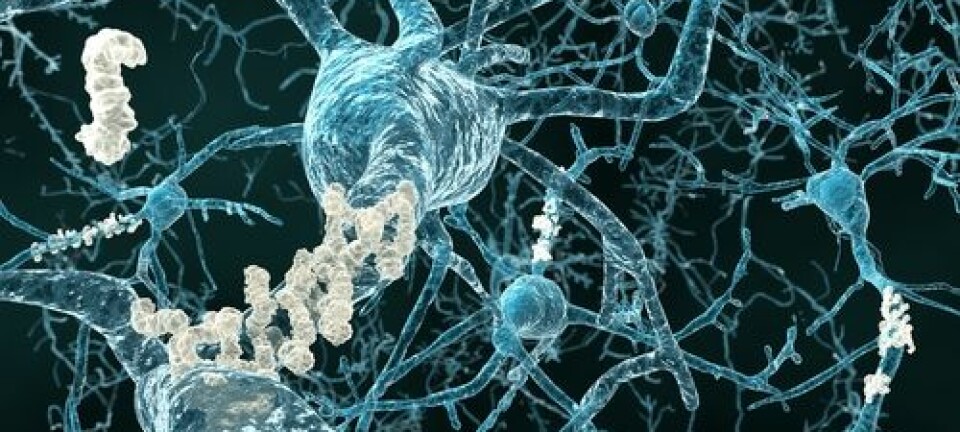
Can sleep prevent schizophrenia, Alzheimer's and ADHD?
Better sleeping habits could prevent a number of neurodegenerative illnesses.
Scientists are working on the new idea that the cleaning system in our brains is connected to neurodegenerative illnesses.
Our brains "clean" themselves during sleep to get rid of accumulating waste. Bad sleeping habits disturb this maintenance process and could influence the development of severe brain diseases such as Alzheimer's disease.
In 2013 a research team, lead by Professor Maiken Nedergaard from the University of Rochester Medical Center, made a huge breakthrough within sleep research. Back then, Nedergaard and her team first discovered that the brain needs sleep as part of the maintenance process that removes waste-proteins from the brain.
The scientific article has just been selected as the most important scientific article of the year by Science AAAS, who are currently hosting the biggest science conference in the world in San Jose, California.
“The results are striking and will most likely influence neuroscience for many years to come," said Science's editor-in-chief Marcia McNutt.
Glial cells are more important than previously thought
So far scientists have mostly been occupied with studying how the neurons in the brain work. Now their attention has been drawn to the glial cells and the glymphatic system.
The glial cells are known as neuron-helpers but they could play a vastly more significant role in the brain, including the creation of thoughts and consciousness as well as cleaning out in the brain during sleep by removing so-called waste-proteins.
“Unknown cells in the brain may be what drives the whole shebang," said Nedergaard.
A connection between sleep and neurodegenerative illnesses
With the new knowledge in place a whole new chapter within sleep research has opened up. The question is now what the maintenance done by the glial cells means for the development of illnesses.
“We know there is a connection between sleep deprivation and illnesses such as Alzheimer's, schizophrenia, depression, and ADHD. People sleep too little and this can mean that waste-proteins accumulate in the brain. This creates inflammation and subsequently destroys the nerve cells," said Nedergaard.
"Current treatments are directed towards the neurons in the brain, however, answers may be found by looking at glial cells," she said. “One idea is to make the glial cells more efficient at cleaning the brain during sleep. This could potentially slow down the development of neurodegenerative illnesses or even cure them."
However, Nedergaard also describes the glial cells as rather alien to us because we still know very little about their function and why they work as they do.
Watch here, where a scientist from Nedergaard's laboratory explains the science behind the glymphatic system:
----------------
Read the original story in Danish on Videnskab.dk
Translated by: Louisa Field












